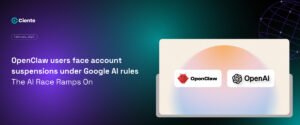Texas is about to be fed $40bn as Google is set to build its AI data centers there. In Space, in Texas, and around the globe- Google is betting on this technology with all its might. But will the AI bubble crash these dreams?
Google has reported that it will be building data centers in Texas. This is how the statement goes, according to the announcement: –
“We’ve called Texas home for more than 15 years, and today, we’re announcing a new $40 billion investment in the Lone Star State through 2027. This funding will help build new cloud and AI infrastructure, including new data center campuses in Armstrong and Haskell Counties.”
But with it comes a promise of responsibility. Google has pledged $30 million to the energy impact fund to scale its center. The data center in Haskell County will be built alongside a new solar and battery point.
While this is the positive impact Google intends to have on the environment, at least as much is possible with AI and its data centers. Google also plans to support local talent by upskilling electricians and 1700 apprentices by 2030.
But do these initiatives acknowledge the risk of failure?
As with any endeavor, failure is imminent. And many organizations, especially Google, look to the long term. If history has shown the world something, it is this: Google can capitalize on tech quickly, fail, pivot, and position itself as a powerhouse.
Yet, the magnitude of this failure will be catastrophic. While many billions are being poured into AI, their failure becomes a ripple that will tear across many, if not all, the countries in the world. This could be the short-termism of the 20th and 21st centuries combined. Equal only to the great depression in terms of its depth.
Many, like Musk and Bezos, have shown that they put profit first, even at the cost of efficiency. This does satisfy the shareholders, but the economy might not be as resilient in the pockets of a magnate. And maybe that, too, is not accurate.
As the organizations look to the future, for power or for hope. Let’s observe and analyze whether that’s going to happen at the cost of the world’s future or not.



